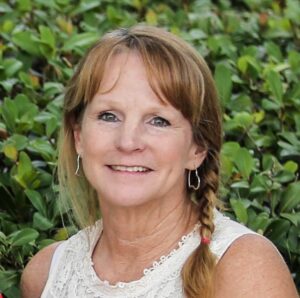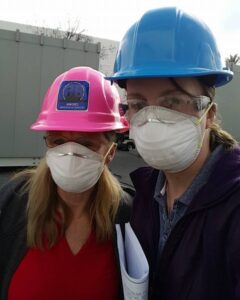
Kelly Kelly draws on over three decades of Texas modular construction expertise
Kelly takes pride that parts of the Code Council's first modular construction standards are drawn from the modular industry in Texas
Beginning in July 2019, the ICC Off-Site and Modular Construction Consensus Committee (IS-OSMC), which was appointed by the International Code Council Board of Directors, began work on standards for off-site and modular construction. The committee developed the ICC/MBI 1200-2021 Standard for Off-site Construction: Planning, Design, Fabrication and Assembly and the ICC/MBI 1205-2021 Standard for Off-site Construction: Inspection and Regulatory Compliance. Those standards were approved on June 28, 2021, by the committee and then received ANSI approval as American National Standards on July 19, 2021. The following profile is one of several focusing on the value of these standards in supporting the off-site and modular construction best practices in building code departments across the country.
The state of Texas has one of the most active modular construction markets in the country. Every year, thousands of units are constructed off-site for a range of purposes, including office space, equipment shelters, lodging, classrooms and student housing.
Those experiences, resulting in best practices and lessons learned by the Texas Industrialized Housing and Buildings Program team — part of the Texas Department of Licensing and Regulation (TDLR) — have become a model for the modular industry and an essential element to the development of the first national off-site construction standards developed by the International Code Council.
Program evolution
 The Texas Industrialized Housing and Buildings statute has been in effect since 1986 and was codified as Chapter 1202 of the Occupations Code, which regulates the construction of modular buildings, both residential and commercial, and modular components for the state of Texas.
The Texas Industrialized Housing and Buildings statute has been in effect since 1986 and was codified as Chapter 1202 of the Occupations Code, which regulates the construction of modular buildings, both residential and commercial, and modular components for the state of Texas.
Kelly Kelly, senior program specialist for the Industrialized Housing and Buildings Program, has been with TDLR since 2007, and first began her career as a quality assurance manager in the manufactured housing/modular industry. She learned from Donna Lipke (retired from the TDLR last year), a nationally recognized name in the industrialized buildings industry. Over the last 15 years, Kelly, working closely with Lipke, helped guide the program’s success as the modular building market in the state continues to grow and evolve.
When asked about modular trends, Kelly said, “The market continues to grow, especially as the housing market in Texas gets more expensive. Modular is a way to expand the market with more affordable options. As well, modular housing is more available in local jurisdictions as compared to manufactured [housing] options.”
Another reason for the expansion in the state is the elimination of height restrictions. In 2015, Texas passed a bill that allows modular structures to exceed three stories (or 49 feet) and then in 2019, removed the height restriction entirely. Today, manufacturers are building multi-story modular structures.
Committee commitment
Her decades of experience in Texas was one of the top reasons that Kelly was asked to join the ICC Off-Site and Modular Construction Consensus Committee (IS-OSMC). She recalled, “I saw the committee as an opportunity for me to make a difference in off-site and modular construction beyond the state of Texas.”
Over the course of about 18 months, the International Code Council developed the ICC/MBI 1200-2021 Standard for Off-site Construction: Planning, Design, Fabrication and Assembly and the ICC/MBI 1205-2021 Standard for Off-site Construction: Inspection and Regulatory Compliance.
Kelly takes pride in the fact that parts of the standard are drawn from the Texas program. “We have a national model for the modular industry,” she added.
When asked about specifics, she pointed to the in-plant inspections process that ensures compliance with mandatory building codes or approved designs, plans and specifications. In Texas and in the new Code Council standards, those inspections are performed by authorized third-party inspectors.
Kelly also brought home some new ideas for continually improving the Texas off-site program.
Process improvement
One of the lessons learned during the standards development involved the certification process.
Currently, the Texas Industrialized Housing and Buildings Program personnel perform the initial factory certification inspections. The ICC/MBI 1205-2021standard recommends that a third-party inspector also performs those inspections.
“It’s a process adjustment that we’re considering,” noted Kelly. “That change would allow our small team to focus more on auditing manufacturers and third-party inspection agencies, versus spending our time on the actual inspections. Right now, we’re so tied up with certifications, we don’t have the staff to perform audits. I believe that more focus on audits, rather than certification inspections, would make all of us better. It would be a win-win for the industry and our program.”
Common ground
When asked about the benefits of the ICC/MBI 1200-2021 and ICC/MBI 1205-2021 standards to the industry, Kelly sees multiple advantages.
Currently, 35 states have industrialized building programs. However, each of these states have slightly different requirements for design review, approval, permitting and inspections.
 Kelly added, “The standards provide [a basis for] consistency and uniformity. I’ve reached out to some of the other state modular programs to learn about their programs and found that they are often dealing with the same obstacles that we have. One of the biggest advantages of the standards is that they open the door for more reciprocity between the various states.”
Kelly added, “The standards provide [a basis for] consistency and uniformity. I’ve reached out to some of the other state modular programs to learn about their programs and found that they are often dealing with the same obstacles that we have. One of the biggest advantages of the standards is that they open the door for more reciprocity between the various states.”
She points out that there are only a handful of third-party inspection agencies (e.g., ICC NTA, PFS TECO, ICC PEI). “We could make the entire inspection process much more seamless, therefore more straightforward for manufacturers and builders, if we build common bridges across state lines where applicable,” she added.
On a final note, Kelly said she appreciated the opportunity to participate on the committee and looks forward to seeing the results of the other off-site and modular standards. She concluded, “It helped broaden my view of the modular building process and the importance of communication among all the different groups, including manufacturers, architects, contractors and industry associations. It helps us come to together and provide uniformity. I look forward to maintaining the relationships that were established during the committee’s standard development process as we all seek to continually improve our processes and build quality off-site and modular solutions.”








